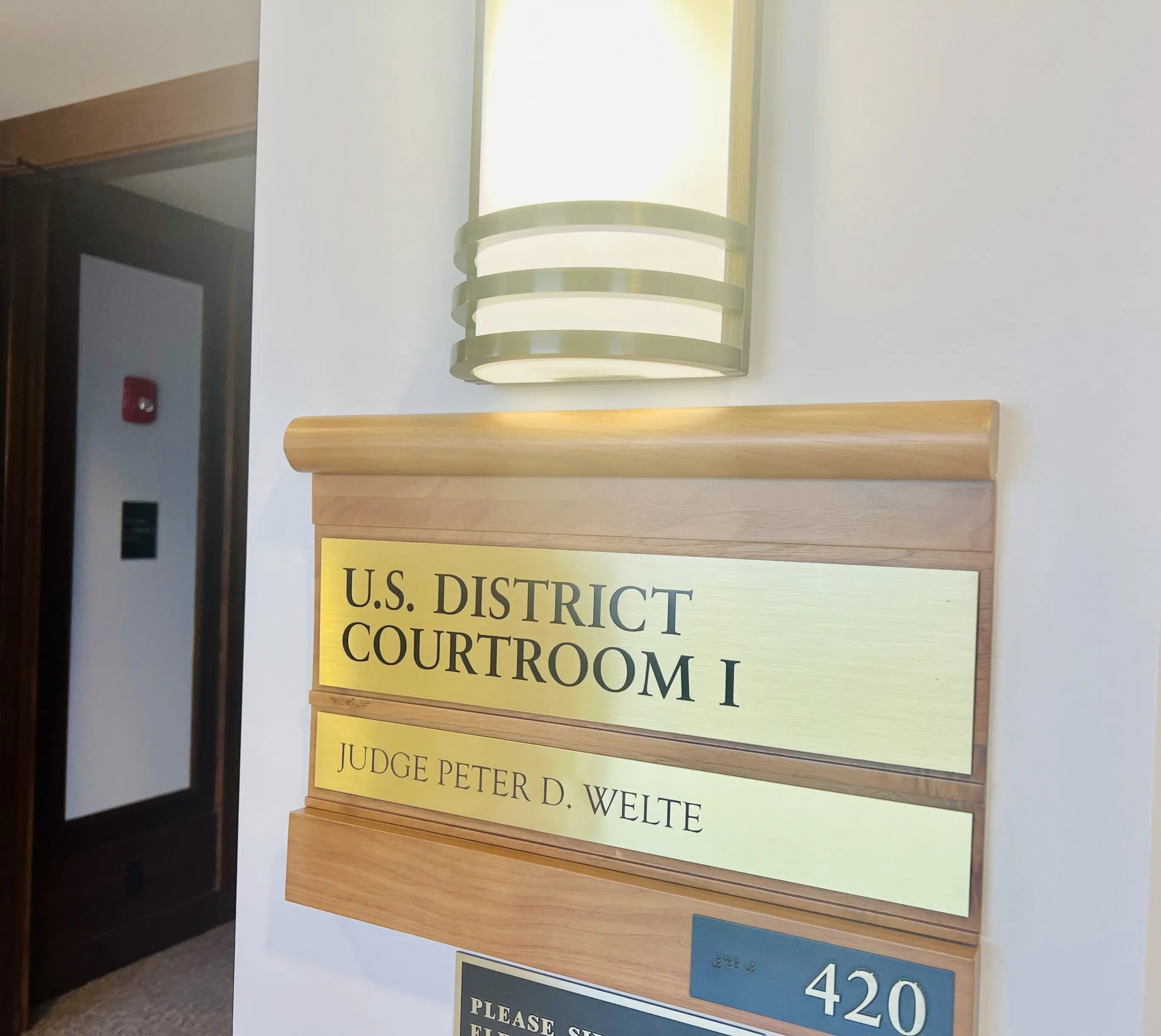
FARGO (KFGO/AP) — Closing arguments were heard Thursday in the federal case brought by two tribes challenging North Dakota’s redrawn legislative district lines and claiming the new map diluted Native American voters’ strength on their reservations.
The federal lawsuit was brought last year by the Turtle Mountain Band of Chippewa Indians and the Spirit Lake Tribe, as well as individual Native American voters, who allege the redistricting done in 2021 by the Republican-led Legislature violates the Voting Rights Act (VRA), the landmark 1965 civil rights law.
Arguing for the tribes was attorney Mark Gaber of the Campaign Legal Center, a Washington, D.C.-based nonprofit. Gaber said in his closing that the case was a simple one and that the redrawn lines were a “textbook” example of VRA violations by reducing from 3 to 1 the opportunity of Native American voters to elect their preferred candidates.
Prior to 2021, North Dakota’s District 9 was situated wholly within Rolette County, a heavily Native American populated county which had for decades consistently sent three Native American voter-preferred candidates to the state legislature.
When the lines were redrawn based on 2020 Census numbers which required District 9 to expand, legislators integrated parts of two majority-white counties to the east in it, rather than expanding it to the south, as requested by tribal leaders. A southern expansion of District 9 would have put the Turtle Mountain and Spirit Lake reservations in the same district, a move the tribes say would have have united “communities of interest.”
The legislature also created subdistricts within District 9, citing the Voting Rights Act. The lawsuit claims this “packed” most Native American voters into one subdistrict, and “cracked” the full Native voting population in District 9, cutting in half their opportunity for representation in the state House.
David Phillips, an attorney arguing for the state, said in his closing that the legislative record showed that the tribes and Native voters actually requested the subdistricts multiple times in the months leading up to redistricting and it was only at the 11th hour that the tribes proposal for a southern expansion of District 9 was raised.
The tribes’ attorneys argued that the state’s legislative redistricting committee never held a hearing on either the Spirit Lake or Turtle Mountain reservation despite the tribes requesting such a meeting multiple times.
Gaber said the state’s focus on what happened prior to the plan being adopted and signed by Governor Doug Burgum in November of 2021 was “myopic,” and election results subsequent to redistricting show its real-world consequence and “overwhelming evidence of Native American vote dilution.”
In 2022, two incumbent, Native voter-preferred District 9 legislators – Representative Marvin Nelson and Senator Richard Marcellais lost their bids for re-election. One Native American, Jayme Davis, was elected, in the “packed” subdistrict 9A.
“The responsibility to draw legislative redistricting lines that comply with the Constitution and comply with the Voting Rights Act is that of the North Dakota legislature, not that of any tribe in North Dakota. Our allegations here is that they didn’t get it right. The tribes tried to tell them they didn’t get it right. The real test here is: does the plan as enacted comply with the Voting Rights Act? We brought a lawsuit that says it doesn’t,” said another of the tribes’ attorneys, Tim Purdon.
Purdon said last year marks the first time since 1991 that the Senate has had no one in its body who is an enrolled member of a tribe sharing geography with North Dakota.
Phillips agreed that the case “rises and falls” on the applications of certain factors within the Voting Rights Act. He said the tribes fell short of meeting their burden to show that all of those standards were violated in the case. In his closing argument, Phillips said plaintiffs’ attorneys used “back of the napkin math” and conflated expert testimony on prior voting turnout and election results in Districts 9 and 15, where the Spirit Lake reservation is located, in order to prove the VRA violations they were claiming.
Senior Legal Counsel for the Campaign Legal Center Molly Danahy said first-person accounts from tribal voters and leaders about the harmful impacts of the redrawn lines were critical to the case.
“I particularly thought the plaintiffs in this case, Collette Brown who is a member of the Spirit Lake Tribe, Chairman Jamie Azure of the Turtle Mountain Band of Chippewa Indians, and former Chairman Doug Yankton of the Spirit Lake Tribe all gave incredibly compelling testimony,” she said.
U.S. District Court Judge Peter Welte will decide the verdict later this summer. There is a June 30 deadline for the case’s parties to submit proposed findings.




Comments